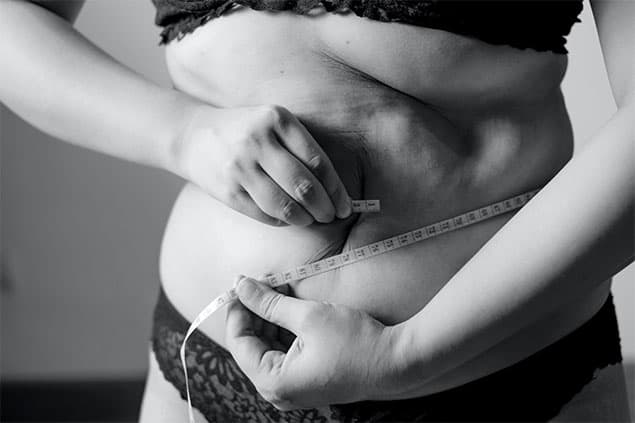January 22nd, 2025
Dr. Mulholland, Md
Recovery Timeline After Facelift Surgery
The specifics of your facelift recovery will depend in part on what kind of facelift you’ve undergone. Your recovery also depends on whether you seek out a women’s or men’s facelift. Generally, however, here’s what to expect:
Days 1-2: After surgery, you may feel unsteady and sleepy. It would be best if you planned for family or friends to drive you home and care for you on your first night. The option to sleep over at our clinic is also available. Day one is usually when you most need pain medication but do not take anything unless your doctor approves it.
Days 3-4: Bruising and swelling usually peak around day 3 and 4, but may be present for a few more weeks. Rest is highly recommended. Add lots of fruit and vegetables to your diet, as the decreased activity may cause constipation.
Days 4-6: You may begin feeling more comfortable moving around or doing light housework. The swelling will continue to go down.
Days 7-14: Remaining swelling and bruising can cause some to experience numbness, tingling, or tightness. These are all common and should not cause concern. At the end of the second week, many are ready to return to work and go out walking.
Days 15-30: We may remove your sutures anywhere between the end of week 1 to week 3, depending on your healing process. By weeks 3 and 4, you still may have some swelling and tightness, but you will start looking and feeling much better and begin to see real improvements in your facial contours. You can exercise again. Your incision sites will be pinkish-red, but this will fade over time.
Post 1 month: You should be back to life as usual with your new look after a month. It can take up to a year for very minor swelling, bruising, tightness, and numbness to go away entirely, but typically you’re the only one who notices. You can begin drinking alcohol again after several weeks.
Facelift Surgery Preparation
A few weeks before your surgery, it is recommended to:
- Avoid taking over-the-counter pain or anti-inflammatory drugs and supplements.
- Adjust certain medications you’re on if your doctor advises you to.
- Stop smoking to avoid scarring.
- Avoid drinking alcohol before and after your surgery.
- Stop taking any blood thinners.
- Prepare a comfortable resting area in your home and make some meals ahead of time.
- Have a friend or family member ready to drive you home after your surgery.
Facelift Surgery Post-operative Instructions
After your facelift, you should:
- Have a friend or family member stay with you for the first 24 hours after surgery.
- Rest a lot.
- Wear comfortable clothes with a zipper, so you don’t have to pull anything over your head.
- Do not remove any dressings that you have been wrapped in until your follow-up appointment a day later.
How Long Does it Take to Recover From Facelift Surgery?
Although recovery time varies from person to person, depending on your health, how quickly your body heals, and the extent of your surgery, you can speed up your recovery by following your aftercare instructions. Additionally, avoid smoking, as it can delay recovery significantly.
How Long Do Facelift Scars Take to Heal?
Facelift scars take 6 months for the incisions to heal, but it can take 1-2 years for the scars to fully fade.
How Long Does the Face Stay Swollen After a Facelift?
Your face will be bruised and swollen for 1-2 weeks. It may get worse before it gets better, but the swelling will go down eventually.
How Long Does the Pain Last After a Facelift?
You will feel some pain for 2-4 days after surgery. You also may have some trouble opening your mouth for a week, and the skin around the incision site will be numb. This may cause itching or shooting pain as the feeling returns in those areas.
Best Recovery Tips After a Facelift
To recover fully and quickly after a facelift, you should:
- Watch how much you exercise. Start walking as soon as possible to reduce swelling, lower your chance of blood clots, and rest, as you may get tired easily. Only partake in non-strenuous activities for at least 6 weeks.
- Monitor swelling, bruising, and remember to rest. Keep a cold compress for your face and neck, avoid heavy lifting and bending, sleep with your head elevated to promote blood flow and to not disturb stitches, avoid excessive sun, and support swollen tissues with elastic wrap applied accordingly.
- Manage pain. You can take 1-2 tablets of Acetaminophen every 3-4 hours for pain, but avoid Ibuprofen as it can cause bleeding/bruising, wear compression garments for support, and have a comfortable area where you can sit upright and heal.
Toronto Plastic Surgeons
Toronto Plastic Surgeons has dedicated his 25 years of practice to cosmetic plastic surgery of the face and body. He prides his excellence on the harmonious balance of vision, aesthetic appearance, and patient care. He is known for his skill and personalized, respectful approach to patients. Contact Toronto Plastic Surgeons and his team today for a consultation, and look forward to becoming your best self!
Facelift Recovery & Complementary Procedures
While recovery from a facelift is a journey on its own, many patients also explore broader transformations as part of a more complete aesthetic plan. For instance, a breast lift with implants is a common addition for those aiming to rejuvenate both the face and body together.

